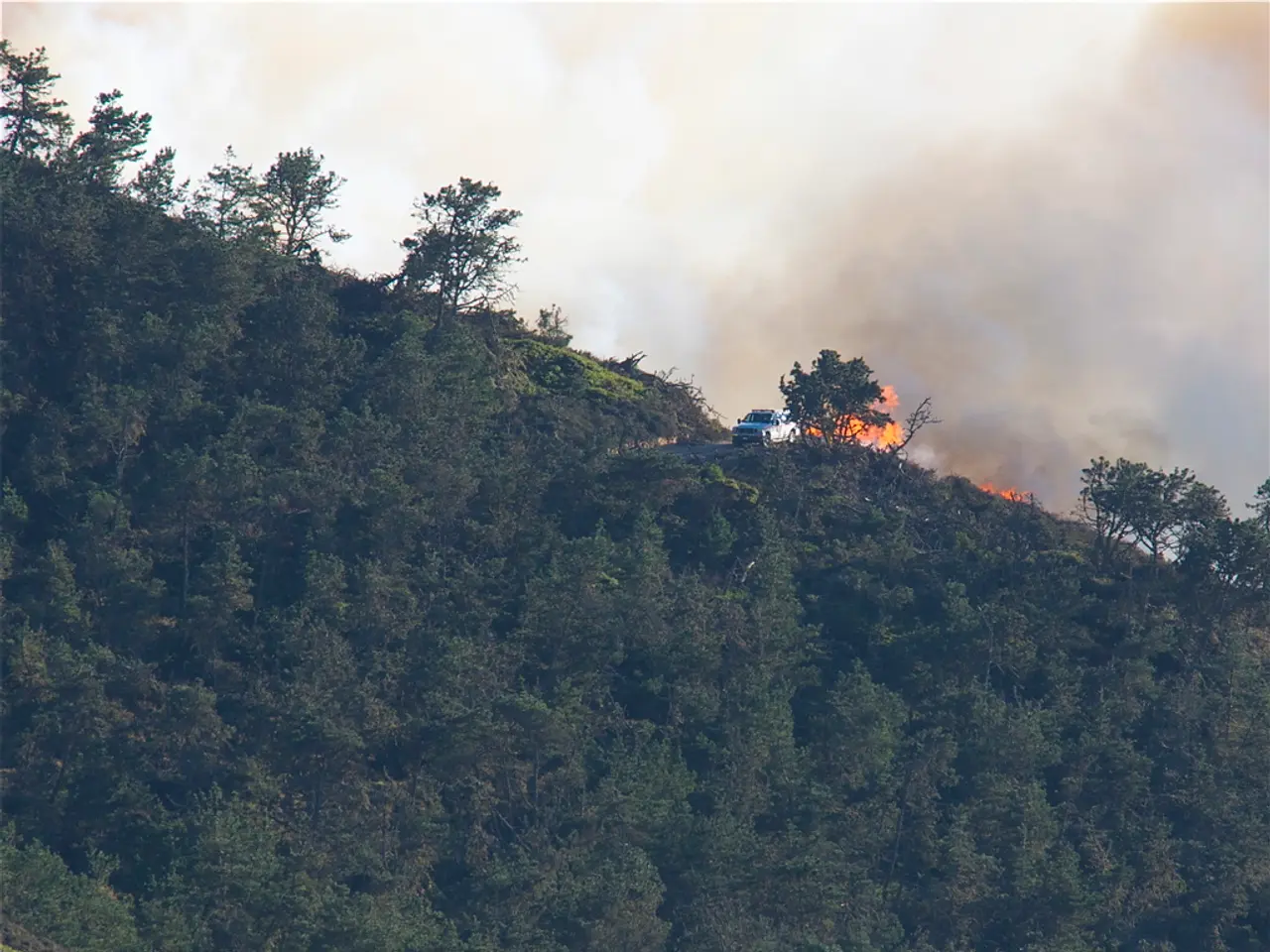Severe storm alert issued by Beijing authorities.
The Chinese capital, Beijing, is currently experiencing heavy rainfall, which is a continuation of the storms that hit the city a few days ago. This weather event has prompted Beijing to issue the highest severe weather alert, advising residents to leave their homes only in case of emergency.
According to the weather service, up to 100 liters of rain per square meter is expected to fall in many districts within six hours during the night. In the outskirts of Beijing, even higher levels of rainfall are predicted, with up to 200 liters of rain per square meter.
This severe weather is causing concern due to the high risk of flash floods, landslides, and mudslides, particularly in mountainous and vulnerable districts like Miyun, Fangshan, Mentougou, and Huairou. The weather service has warned of these risks, emphasizing the need for residents to stay vigilant.
Unfortunately, the heavy rainfall has already taken a toll on the city. Last week, at least 44 people died in Beijing due to floods caused by heavy storms and rain fronts. In a nursing home alone, 31 fatalities occurred due to the floods. These incidents have highlighted the potential loss of life and damage to infrastructure that can occur during such weather events.
The repeated severe weather events in Beijing are primarily caused by climate change, which increases the frequency and intensity of extreme weather such as heavy rainfall, floods, and heatwaves. Beijing's geographical features, including its topography, also amplify the effects of extreme precipitation, leading to rapid and devastating flooding.
The potential long-term effects of these weather events include increased risks of flash floods, mudslides, and landslips, loss of life and damage to infrastructure, disruption of normal life and production, economic impacts from damage repair and disaster management, possible increase in public health risks due to environmental hazards linked to flooding, and challenges to urban planning and disaster readiness, requiring enhanced infrastructure and emergency systems.
China, as the largest greenhouse gas emitter, contributes to these changing weather patterns. However, the country is actively pursuing goals to become carbon-neutral by 2060 to mitigate future climate impacts.
Despite these efforts, the immediate weather patterns continue to cause severe disruptions in Beijing and surrounding regions. The severe weather alert comes just a few days after deadly storms hit Beijing, and authorities have been criticized for not taking the impending weather conditions seriously and not reacting quickly enough.
Residents are advised to stay informed and follow the instructions of the weather service during this time. Emergency services are on high alert and are prepared to respond to any incidents that may occur.
The following information shall be provided in the case of a vehicle: motorists should keep a radio or television in their vehicles to stay updated on the weather forecasting, as heavy rainfall and flash flood risks are high in Beijing, particularly in vulnerable districts like Miyun, Fangshan, Mentougou, and Huairou. It is essential to drive cautiously and avoid excess travel, especially at night when up to 100 liters of rain per square meter is expected to fall in many districts, and higher levels are predicted in the outskirts.








